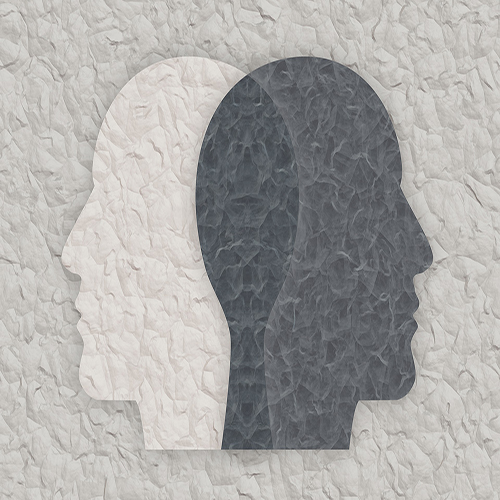Empathy is one of the most highly valued virtues humans can have. To have empathy is to have an understanding and share the feelings of another person, usually to foster healthy, positive relationships. There are other upsides to empathy. Displaying empathy for an individual allows you to know how to respond in different social situations, especially when needing to show compassion for someone who is feeling down.
Being empathetic also promotes helping behaviors from others – if you help others out, they’re more likely to help you out in the future. Although this can be used manipulatively, which we will discuss later, when done with good intentions, that empathy can be a real lifesaver! Another way empathy is beneficial is that when people habitually practice empathetic behaviors, they learn to regulate their emotions better. Some people have been gifted with a strong empathetic trait within them that comes naturally and with ease, benefitting from all its humble rewards. These people are called empaths.
Did you know that there are many different types of empaths? If you’d like to read about all the different empaths in the world, then stick around! Because today’s article is: The Nine Types of Empaths! Be sure to read until the end, because the last type of empath is one, we at bignama felt was really unique!
Number 1. Emotional Empath.
Before we get further into the list, let’s describe the most common type of empath and the kind that the average person would think of when they hear the word “empath”: The emotional empath. These people are naturally compassionate, aware of other people’s moods, and often sensitive. Because they’re so in tune with other people’s feelings, they can accidentally absorb their mental states which may make them appear a little up-and-down in their moods.
When they’re around positive, uplifting people, they tend to be in a good mood. If they spend their day comforting a friend who is depressed, they might use up all their energy cheering them up and instead absorb their negativity afterward. These emotional empaths might be more susceptible to compassion fatigue. This is also known as a secondary stress reaction – a type of stress that sometimes results from helping or wanting to help another individual who is either traumatized or experiencing emotional turmoil.
Compassion fatigue can actually lead to emotional and physical exhaustion, diminishing the ability to empathize, and leaving the empath feeling burnt out. If you’re an emotional empath and you experience this, check out our article 7 Signs You Have Poor Boundaries to avoid it! You can show empathy while still taking care of yourself!
Number 2. Intuitive Empaths.
An intuitive empath is someone who has very high levels of intuitive empathy which allows them to sense people’s energy and emotions without them even speaking. Their intuition can make it appear as if they’re telepathic, guessing what’s troubling them based on the way that they’re slouched over their desk. Intuitive empaths likely have high levels of affective, emotional, empathy, and cognitive empathy.
They don’t have telepathic powers, rather they’re very wise and logical, and will take the time to rationally break down the situation their friend or partner is in to guess what is wrong with them, to know exactly how to comfort them. Unlike emotional empaths who mainly let their emotions guide them, intuitive empath lets their hearts and their brains lead the way.
Number 3. Plant Empaths.
That’s right, there’s a type of empath for plants, too! Are you the type of person who couldn’t grow a garden if your life depended on it? Or are you the type who takes the term “green thumb” to the next level by feeling an intrinsic connection and understanding of the needs of your plants? If you’re the latter, then you might be a plant empath!
Plant empaths are able to grow luscious rose bushes and six-foot-tall sunflowers with ease by always knowing what the plant is lacking. If the leaves are wilted and brown, they know the exact combination of water and sunlight to keep them alive. It’s as if their bodies run on the process of photosynthesis as well, feeling a bond with their succulents and gardens that very few can relate to.
Number 4. Animal Empaths.
If there’s a plant empath, then, of course, there is an animal empath! Animal empaths are excellent at connecting with their animals and understanding their needs through their body language as if they’re actually having a conversation!
Some people might not notice what their cat’s meows are trying to say, but an animal empath will pick up on the patterns and cues of the meows, learning what they’re asking for each time. If a pet is feeling sick, some people might not notice or pass it off as them being tired, but an animal empath will sense that they’re unwell and might need to see a vet. If you feel especially in tune with your cats or dogs, then you might just be an animal empath!
Number 5. Physical Empaths.
These types of empaths are also sometimes known as “medical empaths”. Great to have around in medical settings, like doctors, nurses, or paramedics, physical empaths are easily able to feel the physical condition of another person – although, they might also be more prone to compassion fatigue if they aren’t able to control it.
If someone looks a little pale and clammy but is trying to push through it, a medical empath might quickly identify that the individual has a fever and should see a doctor. They also might be able to feel other people’s pain, such as if someone is wincing or feeling nauseous when someone is throwing up.
Number 6. Heyoka Empath.
A heyoka empath is a type of empath who views and lives their life unconventionally. Highly spiritual in nature, the term originated from the Native American Sioux Tribe some believe they are the most powerful empath. Their power comes largely from their sense of humor, defiance of social norms, and ability to show people their true selves. Their empathy is so strong, they can mirror people perfectly, showing them what their unlikable or harmful traits truly look like.
They feel like they’re put on a quest through life to show people their dark sides to help them grow as more positive people, impacting every person they meet. This can be emotionally draining for the heyoka empath and they like to retreat to solitude whenever they can. But when they do venture out into the public, they’re like a wise jester, changing everyone’s views around them through entertainment. Although they’re sometimes seen as manipulative or emotionally unpredictable, they live their lives with good intentions.
Number 7. Dark Empaths.
The dark empath is the newest type of empath coined by psychologists. They are empaths who have high cognitive empathy, like intuitive empaths, but low affective, or emotional, empathy. A good way to think of dark empaths is to put them on a spectrum. In the middle would be “normal” levels of empathy and on the far right would have the “dark triad” of personality traits. People who score high on the dark triad are known to have little to no empathy. This would put dark empaths in between “normal” and “dark triad”.
They are people who have empathy but choose to use it manipulatively when they want to meet a goal, but they aren’t as harmful as the “dark triad”. Still, dark empaths can be sneaky people, acting like they’re kind-hearted emotional empaths when in reality they’re usually only serving their own needs. Very skilled in mirroring people, they use it to attract people in and say what they need to say to further their goal, even if they don’t mean it. They’re natural heartbreakers who can have anyone wrapped around their fingers – just to drop them when they’re no longer needed.
Number 8. Super Empaths.
Super empaths – the narcissist’s worst nightmare and the most powerful empath of all. Super empaths harbor traits of every other type of empath, using their intuition, affective empathy, and physical empathy to guide their way through social interactions and ensure everyone is happy and comfortable.
They’re even known to be great with animals and plants! What makes super empaths even more powerful is that they have a core sense of identity which allows them to set boundaries better than other empaths, reducing the likelihood of experiencing emotional burnout. The super empath will even harbor traits of dark empaths when they need to, like if a narcissist is treating them wrong.
They’re strong-willed individuals who have a moral sense of what is good and bad and they don’t let social pressures push them off track. If you want to learn more about if you’re a super empath, the most powerful empath, and the narcissist’s worst nightmare, check out our video on the topic linked below!
Number 9. Dream Empaths.
Dream empaths are unique types of empaths who claim that they gain understanding and intuitive information through their dreams about other people! These types of empaths are usually skilled at lucid dreaming and gain much of their inspiration in their real life through their journeys in their dreams. They’re naturally gifted at interpreting their and other people’s dreams correctly. If your friends keep coming up to you to ask you to decode their dreams, you might be a dream empath!
Read More: Are You an Empath? Here Are 11 Ways to Protect Yourself from Narcissists






